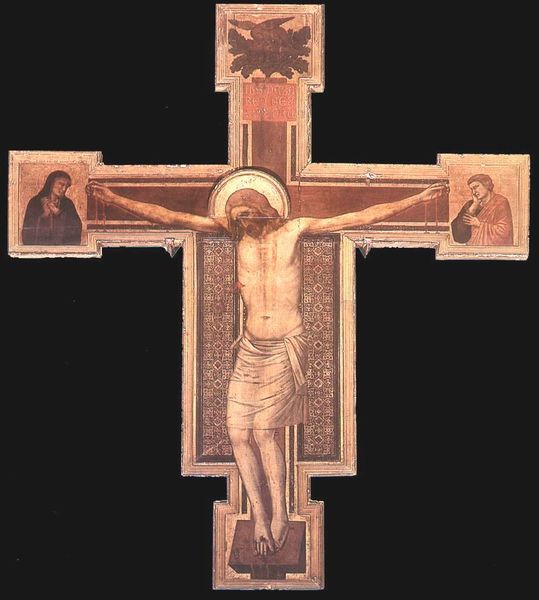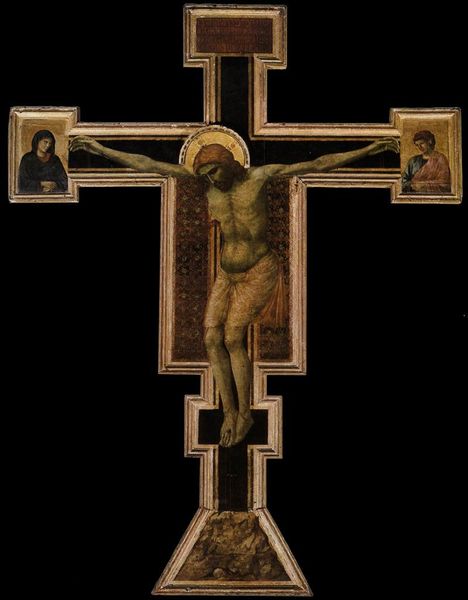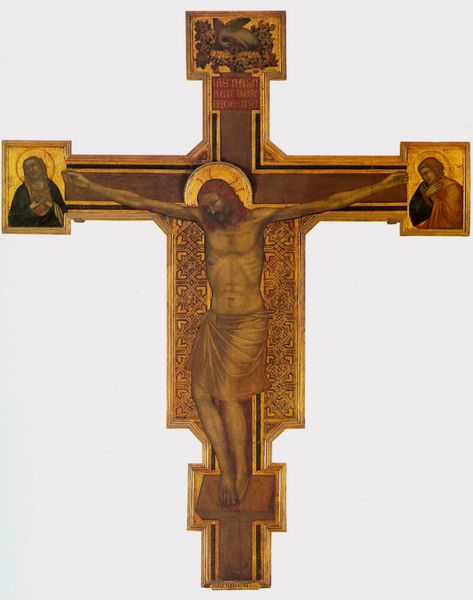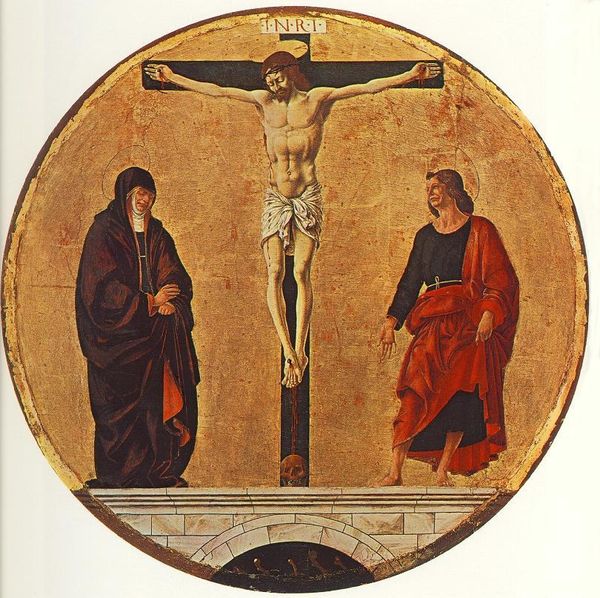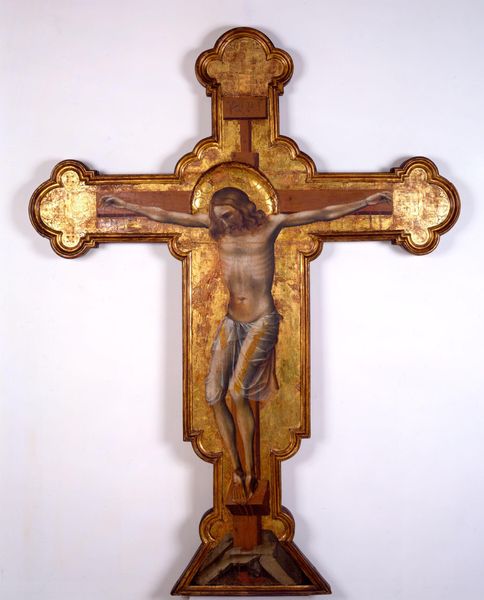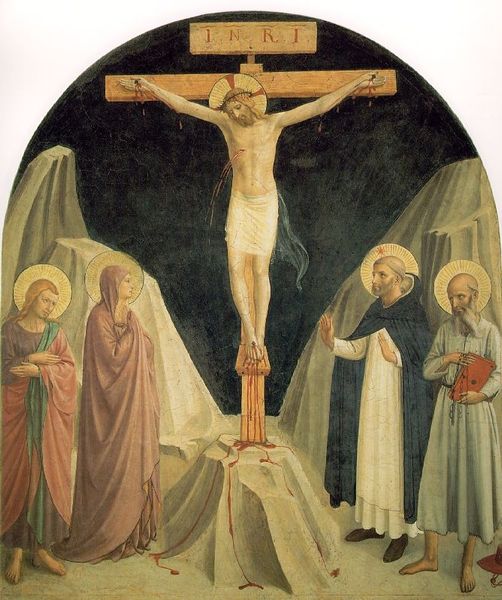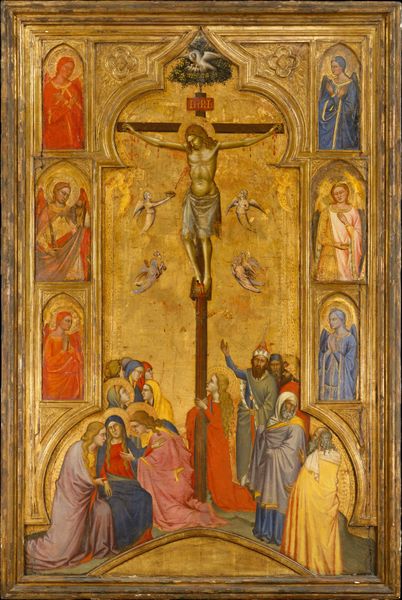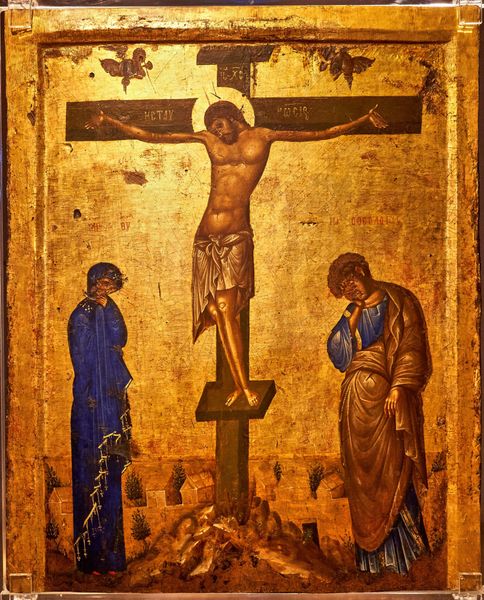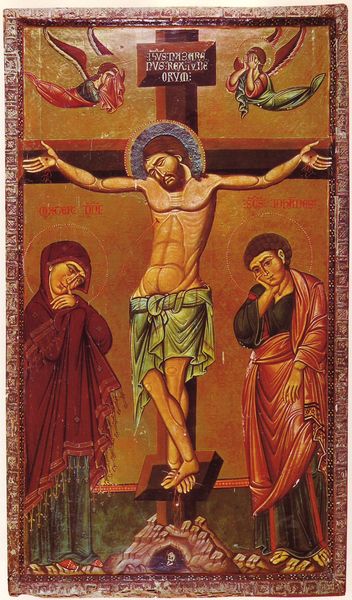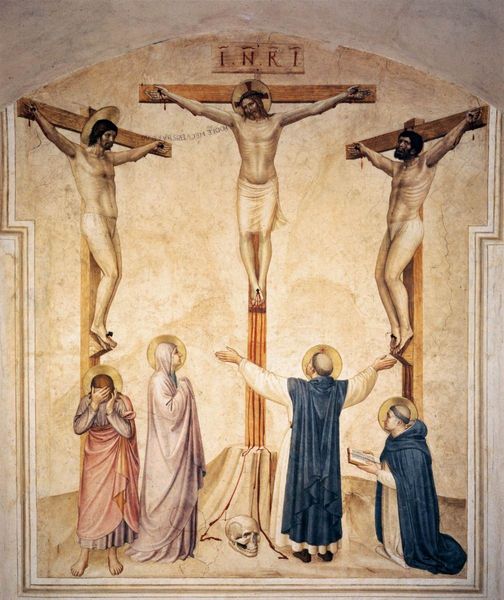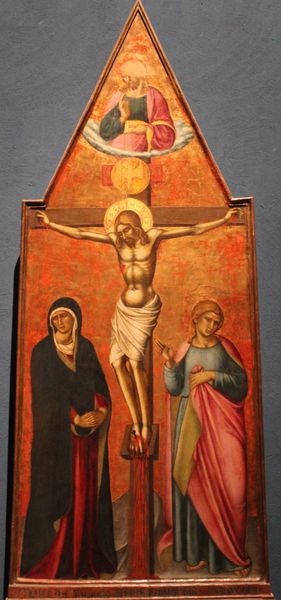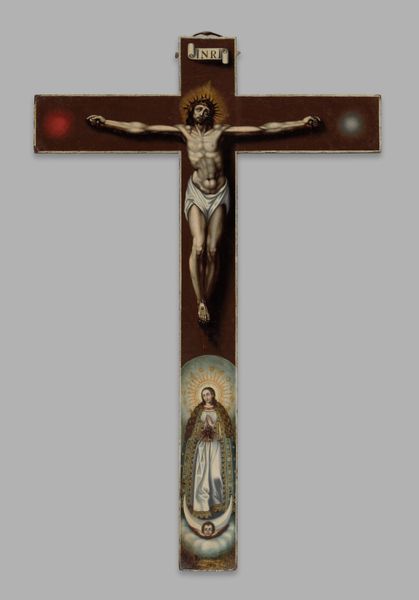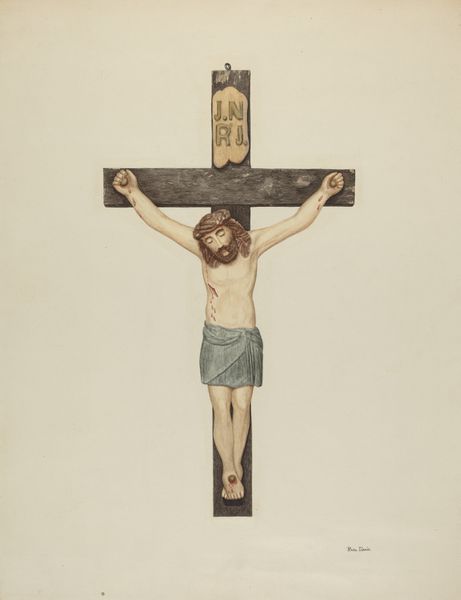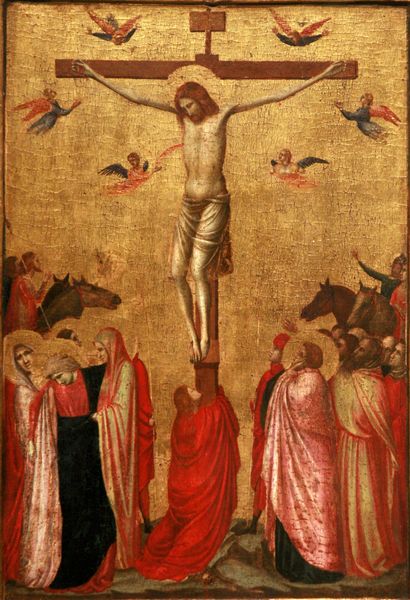
#
toned paper
#
symbol
#
sculpture
#
sculptural image
#
possibly oil pastel
#
oil painting
#
jesus-christ
#
cross
#
unrealistic statue
#
underpainting
#
pastel chalk drawing
#
christianity
#
crucifixion
#
3d art
#
watercolor
#
christ
Dimensions: 390 x 448 cm
Copyright: Public domain
This large painted crucifix was made in Florence by Cimabue, sometime in the late 13th century. It's made of humble materials: wood, gesso, and paint, but combined to magnificent effect. The wooden support isn't just a passive ground, it's essential. Cimabue carefully selected and joined the planks, understanding that the wood's grain and stability would affect the final image. The gesso ground, made from plaster and glue, was applied in layers, each meticulously smoothed to create a pristine surface for painting. Then comes the paint itself, likely egg tempera, made by mixing pigments with egg yolk. Consider the labor involved here, from preparing the wood to grinding the pigments. These processes were not merely technical, but deeply entwined with the spiritual and cultural values of the time. The gold leaf, painstakingly applied to create a halo and embellish the cross, adds a sense of divine splendor. By attending to these processes, we recognize that this artwork is not just a representation of Christ's crucifixion, but also the embodiment of human skill, tradition, and devotion.
Comments
artera about 2 years ago
⋮
Originally known as Bencivieni di Pepo, Cimabue (c.1240-1302), as he is commonly known, was both a painter and a mosaicist. Cimabue is generally regarded as the last great painter working in the Byzantine style, which was characterized by relatively static images embellished in rich decorative gilt detail almost exclusively of Christian theme. He is also credited with discovering Giotto. Together, they were among the very first in the history of painting to depict people in lifelike proportion with individualistic features, earmarking a major shift toward naturalism in painting.
Join the conversation
Join millions of artists and users on Artera today and experience the ultimate creative platform.
